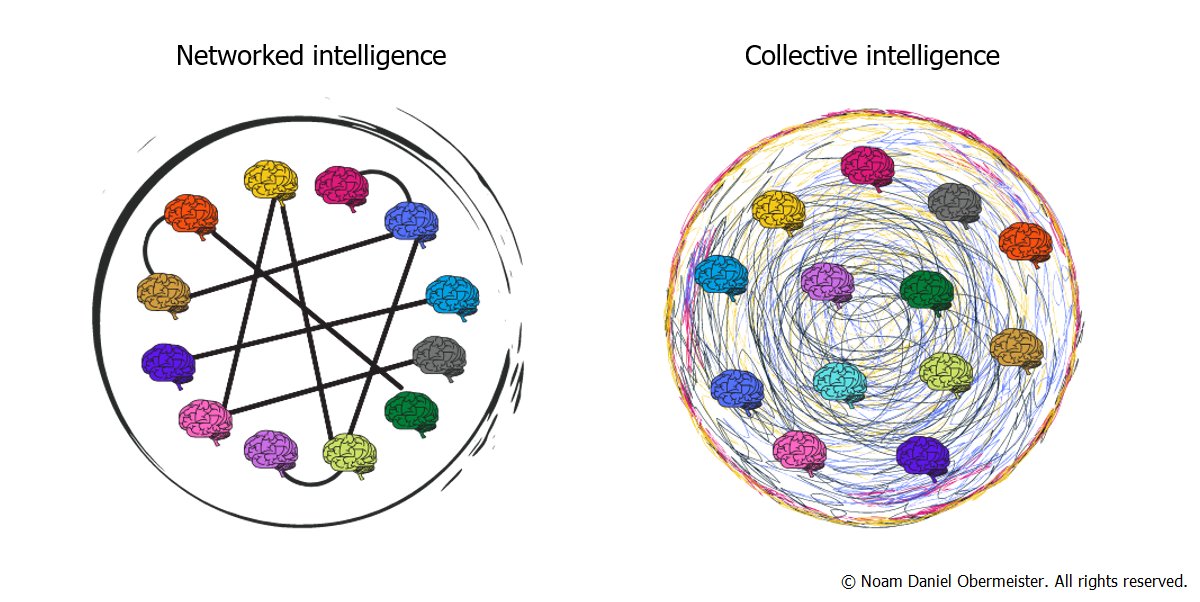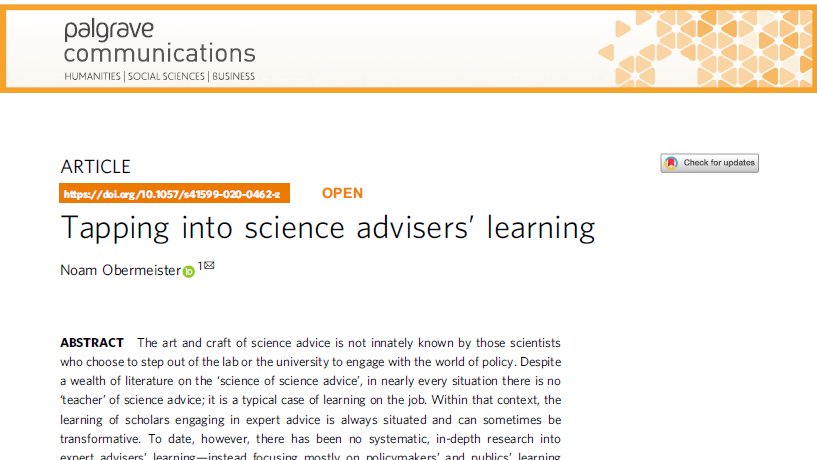
Interested in 𝘩𝘰𝘸 & 𝘸𝘩𝘢𝘵 science advisers learn? A thread on my #PhD findings - looking at the learning journeys of UK science advisers 🧵👇🏻. /1
#sciencepolicy
#scienceadvice
#sciadvice
#sciencepolicy
#scienceadvice
#sciadvice
Science advisers learn on the job. Nothing has quite prepared them for the delicate balancing act that is being a science adviser⚖️(whether formal or informal roles). They have to simultaneously meet the expectations and standards of both academic and policy colleagues. /2
Advisers are regularly taken aback by how different the policy world🌍turns out to be, compared to the academic world🪐they are used to. This includes their respective professional values, norms, practices and so on. /3 

Notable differences between🌍🪐include timeframes, standards of rigour, tolerance for uncertainty, writing styles and more. I argue that these are ‘cultural’ differences; academia and policy (especially the British Civil Service) are professional cultures in their own right. /4
When these cultural differences are great, or even in conflict, advisers can experience ‘culture shock’. In such cases their learning can be profoundly 𝘵𝘳𝘢𝘯𝘴𝘧𝘰𝘳𝘮𝘢𝘵𝘪𝘷𝘦 (as per Jack Mezirow’s transformative learning theory). /5
Such transformations may involve or lead to recalibrations of expectations, changes in patterns of behaviour, and/or empathy for - and displays of appreciation of - the many constraints policymakers are under; all of which are crucial for building trust. /6
Lessons learnt are not universal, however. They depend on individual lived experiences and perspectives, national political cultures (science advice ecosystems will vary between policy issues and countries), and the organisational cultures advisers are exposed to. /7 

Their learning is therefore also 𝘴𝘪𝘵𝘶𝘢𝘵𝘦𝘥 (Lave and Wenger 1991). The diverse modes & models of science advice - and the institutions embodying them - varyingly shape how/what advisers learn. They affect what advisers think about best practice and acceptable behaviour. /8
Science advice can be formal or informal, reactive or proactive, and can involve collaborative writing and/or building networks. In any given configuration, specific lessons around what works will emerge. Lessons learnt are therefore not always transferable. /9
I identified two widespread models - with repercussions on learning - in UK #sciadvice: i) 𝘤𝘰𝘭𝘭𝘦𝘤𝘵𝘪𝘷𝘦 𝘪𝘯𝘵𝘦𝘭𝘭𝘪𝘨𝘦𝘯𝘤𝘦 and ii) 𝘯𝘦𝘵𝘸𝘰𝘳𝘬𝘦𝘥 𝘪𝘯𝘵𝘦𝘭𝘭𝘪𝘨𝘦𝘯𝘤𝘦. The ‘whole is greater than the sum of its parts’ versus the ‘address book’ approach. /10 

Collective intel. relies on high-quality group deliberation, interdisciplinarity, and emergent knowledge products. Networked intel. relies on trusted relationships with and between individuals or institutions, effective brokerage, and interpersonal skills. See table, below. /11 

There are nevertheless similarities across the board. Skilful advisers develop similar hard and soft skills regardless of the mode or model. The @EU_ScienceHub competence framework presents some of these various skills in detail, see bit.ly/3SEYXnY /12
I group these skills under 𝘤𝘰𝘮𝘮𝘶𝘯𝘪𝘤𝘢𝘵𝘪𝘰𝘯 𝘴𝘬𝘪𝘭𝘭𝘴 (e.g. writing for non-experts), 𝘳𝘦𝘴𝘦𝘢𝘳𝘤𝘩 𝘴𝘬𝘪𝘭𝘭𝘴 (e.g. evidence synthesis), 𝘮𝘢𝘯𝘢𝘨𝘦𝘳𝘪𝘢𝘭 𝘴𝘬𝘪𝘭𝘭𝘴 (e.g. facilitation), and 𝘱𝘰𝘭𝘪𝘵𝘪𝘤𝘢𝘭 𝘢𝘤𝘶𝘮𝘦𝘯 (key for having influence). /13
Skilful advisers also share certain character traits that are appreciated by scientists and policymakers alike. I’ve identified three crucial ones: i) 𝘢𝘥𝘢𝘱𝘵𝘢𝘣𝘪𝘭𝘪𝘵𝘺; ii) 𝘦𝘮𝘱𝘢𝘵𝘩𝘪𝘤 𝘭𝘪𝘴𝘵𝘦𝘯𝘪𝘯𝘨; and iii) 𝘴𝘦𝘭𝘧-𝘢𝘴𝘴𝘶𝘳𝘢𝘯𝘤𝘦. /14
All three traits, and many others, can be partially innate, but are also equally consolidated with practice and experience. For example, self-assurance is built over time, as one develops confidence in oneself and in the integrity of the system, at large. /15
Within these diverse environments, skilful advisers are also often T-shaped. They have in-depth subject matter expertise, but are equally able to work at ease with various stakeholders and with colleagues in different disciplines. /16
The good news is that while the T-shaped careers cannot be fully planned, early-career researchers can nevertheless try to get involved in inter- or trans-disciplinary projects. Some of the skills they acquire in those project are transferable to #sciencepolicy /17
Key findings are that advisers are both born and made, and there’s nothing quite like experiencing it for yourself. Some modes of science advice and organisational cultures might chime better with one’s existing strengths. Figuring that out is a matter of trial and error. /18
In my #PhD , I also discuss the results of two exciting pilots: i) longitudinal diaries to study policy internships (e.g. @UKRI_News Policy Internship scheme) and ii) a stylised simulation of a scientific advisory committee. Diaries and gamification are very promising. /19
I’m excited to start the next chapter with @SocSim. A huge thanks to all those who helped me get the #PhD to the finish line. Credit to @emiliaorg for the great figures. All rights reserved. Do not hesitate to DM me if you would like additional information (e.g. methods). /END
• • •
Missing some Tweet in this thread? You can try to
force a refresh





